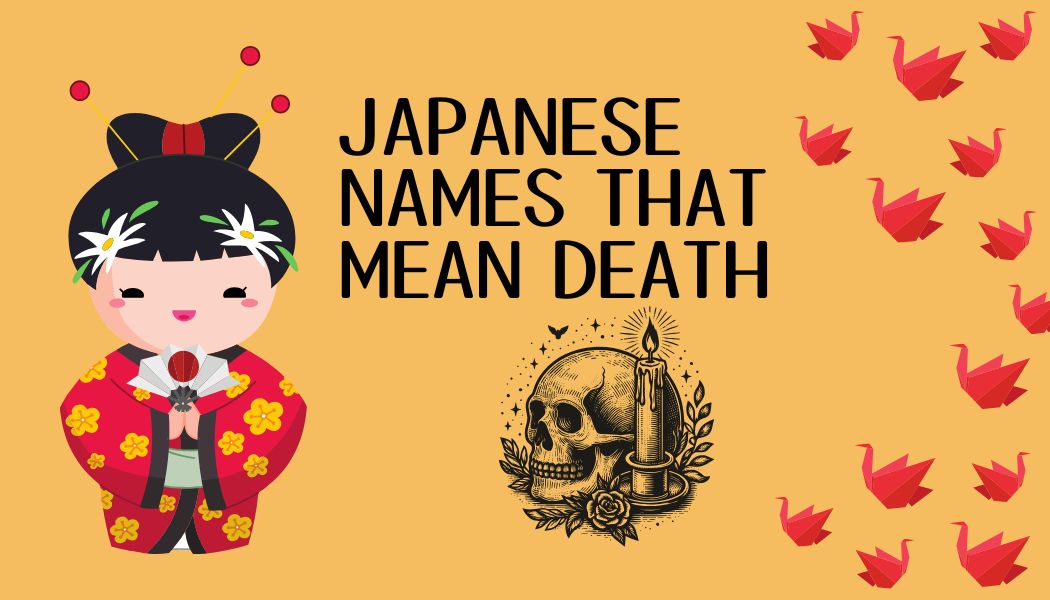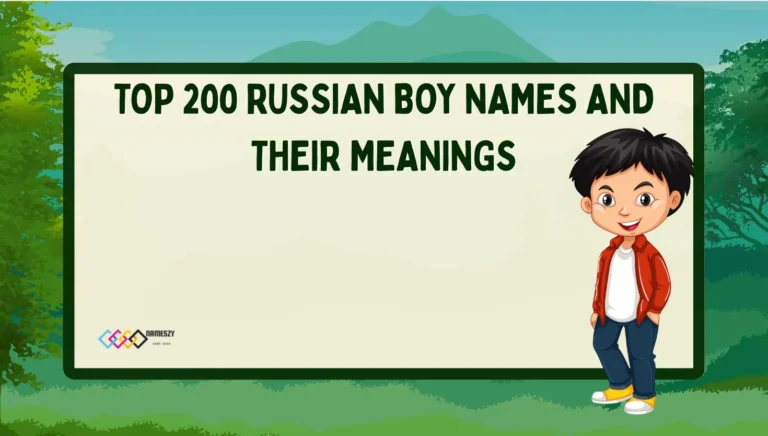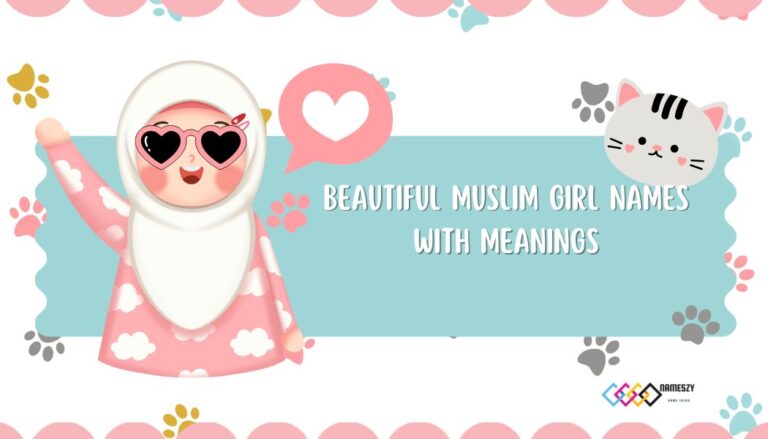Japanese Names That Mean Death
Japanese names that mean death are often searched by writers and worldbuilders, but in real life these names are extremely rare in Japan. The kanji for death (死) is considered inauspicious in personal naming, so parents usually avoid characters that suggest misfortune and choose poetic symbols instead.
This guide explains why literal “death” names are uncommon, how kanji readings and homophones can mislead, and which respectful, culturally grounded motifs can capture a somber tone without causing offense.
You will find quick context on naming norms, a kanji primer, a curated list of symbolic alternatives, and a simple vetting checklist with reliable resources. If your goal is a character who carries themes of impermanence, night, or renewal, the sections below will help you choose a name that feels authentic, nuanced, and considerate of Japanese language and culture.
Purpose of Choosing Japanese Names That Mean Death
Choosing a name that gestures toward death can serve specific creative and scholarly goals. Used carefully, it can deepen meaning without causing cultural missteps.
Storytelling and Character Arcs
- Signal theme and tone for tragedies, antiheroes, or tales of impermanence.
- Foreshadow loss, sacrifice, or a cycle of endings and beginnings.
- Contrast inner conflict with outward politeness by pairing a soft-sounding name with a somber kanji nuance.
Symbolism Without Saying “Death”
- Convey darkness, endings, or transience through adjacent imagery like night, shadows, winter, the new moon, frost, ash, or withering blossoms.
- Use motifs such as 夜 night, 影 shadow, 朔 new moon, 露 dew, 桜 cherry blossom to suggest mortality themes indirectly.
Worldbuilding and Genre Signals
- Dark fantasy, psychological drama, and historical fiction often use names to establish atmosphere.
- Names tied to seasonal decline or lunar cycles can anchor a setting’s cosmology and ritual calendar.
Emotional Resonance and Reader Expectations
- Names cue mood before plot events occur, shaping how readers interpret choices and dialogue.
- A well chosen symbolic name can make pivotal scenes feel inevitable rather than sudden.
Thematic Cohesion
- Unify a cast through a shared lexicon of motifs. For example, siblings named with lunar phases to map different stages of loss and renewal.
- Tie locations, artifacts, and chapter titles to the same symbol set for a coherent aesthetic.
Ethical and Cultural Care
- Literal “death” kanji like 死 are rarely used in real given names and can read as insensitive.
- Prefer symbolic or poetic kanji that carry somber tone without stating death directly.
- Always verify readings and connotations with a reliable dictionary and, ideally, a native speaker.
Academic or Lexical Study
Researchers may examine taboo graphemes and homophones to understand naming norms, superstition, and linguistic avoidance patterns.
Do Japanese Names Literally Mean “Death”?
Short answer: almost never. In modern Japanese naming, the kanji for death (死) and closely related graphs are treated as strongly inauspicious, so parents avoid them in given names. When people search for “names that mean death,” they usually want somber symbolism. Real names tend to express that mood through adjacent motifs like night, shadow, winter, the new moon, or transience rather than stating death directly.
Cultural context: taboo around 死 (shi), homophones, naming norms
- Taboo of 死: The graph 死 directly denotes death, which clashes with the protective, aspirational purpose of personal names. Names are expected to bless a child with health, virtue, or beauty, not misfortune.
- Homophones: The syllable shi can be part of many positive names, but it also sounds like the word for death. Number 4 (shi) and some readings with ku can hint at suffering. These sound-based superstitions influence choices even when the kanji meaning is fine.
- Naming norms: Japanese given names are built from kanji that carry appealing meanings and natural imagery. Parents choose characters that are poetic or virtuous, and stylists often balance meaning with aesthetic stroke forms and compatible readings. Literal references to death fall outside this norm.
Why you rarely see literal “death” kanji in given names: etiquette, register, superstition
- Etiquette and register: 死, 亡, 殉, 厄, 災 belong to formal or negative registers used in news, bureaucracy, or memorial contexts. Using them in a child’s name would feel jarring or insensitive.
- Superstition and social reception: Families and elders often veto characters that could invite bad luck or social stigma. Even edgy or artistic parents usually reach for symbolic stand-ins like 夜 (night), 影 (shadow), 朔 (new moon), 露 (dew), 桜 (cherry blossom) to suggest impermanence or mourning without saying “death.”
- Administrative practicality: Names must use approved characters and plausible readings. Literal death morphemes are not customary in the pool of name kanji, and registrars may question unusual compounds that imply harm.
Writer caution: avoid exoticization, verify kanji, readings, and nuance
- Do not exoticize: Treat death-related themes with the same care you would in your own culture. Avoid picking a shocking graph just to make a character feel “more Japanese.”
- Verify every element:
- Look up each kanji in a dictionary to confirm core meaning and name suitability.
- Check readings (on’yomi vs kun’yomi) and whether that reading makes sense in names.
- Test the full compound with a surname to avoid accidental puns or unlucky sounds.
- Prefer symbolic pathways: If your theme is mortality, consider motifs like twilight, withering blossoms, winter dusk, new moon, or quiet water. These are culturally grounded and widely understood.
- Sensitivity pass: Ask a native speaker or cultural reviewer to spot tone issues, archaic vibes, or slang overlaps.
Japanese Names That Mean Death For Males
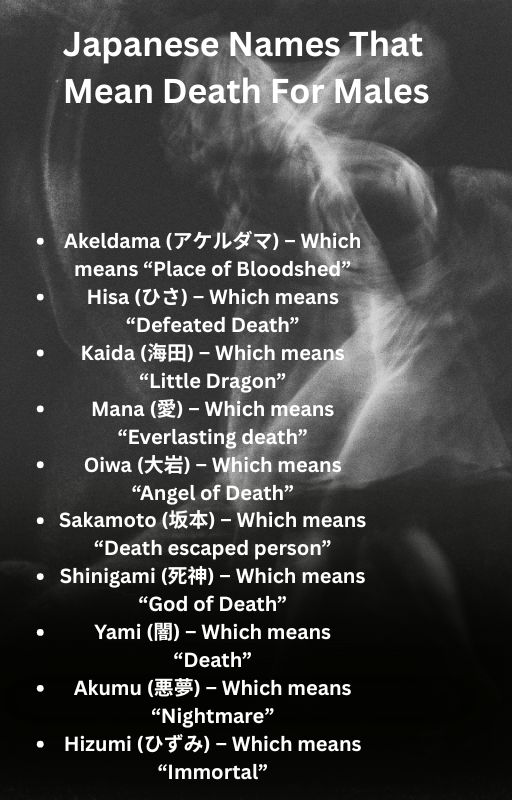
| Name (日本語 ・ Romaji) | Meaning / Theme (symbolic, not literal “death”) |
|---|---|
| 夜 ・ Yoru | Night; darkness; quiet hours |
| 影 ・ Kage | Shadow; silhouette |
| 陽炎 ・ Kagerō | Heat-haze; fading mirage; ephemerality |
| 朧 ・ Oboro | Hazy; dim; twilight |
| 朔 ・ Saku | New moon; beginning after an ending |
| 三日月 ・ Mikazuki | Crescent moon; thin light in darkness |
| 月影 ・ Tsukikage | Moonlight; the moon’s shadow |
| 月人 ・ Tsukito | Moon person; moon-touched (fictional) |
| 月夜 ・ Tsukiyo | Moonlit night |
| 月彦 ・ Tsukihiko | Moon + gentleman; lunar elegance |
| 夕暮れ ・ Yūgure | Dusk; nightfall |
| 黄昏 ・ Tasogare | Twilight; between light and dark |
| 時雨 ・ Shigure | Late-autumn rain; passing shower |
| 静夜 ・ Shizuya | Quiet night; still evening |
| 霊 ・ Rei | Spirit; chill, solemn tone (context) |
| 冷人 ・ Reito | “Cold/quiet” + person (fictional compound) |
| 冬夜 ・ Fuyuya | Winter night |
| 冬樹 ・ Fuyuki | Winter tree/season; wintry tone |
| 冬人 ・ Fuyuto | Winter + person |
| 黒斗 ・ Kuroto | Black/ink + “to”; somber tone |
| 九郎 ・ Kurō | Traditional male name; “ninth son”; dark phonetic vibe |
| 黒也 ・ Kuroya | “Black” + ya; shadowed presence (fictional) |
| 黒木 ・ Kuroki | Dark wood; somber timber (surname used as given in fiction) |
| 黒瀬 ・ Kurose | Dark shoal; deep waters (surname; fiction-OK) |
| 安霊 ・ Anrei | Quiet + spirit; solemn calm (fictional) |
| 安心 ・ Anshin | Quiet heart; inner calm (word; stylized as name in fiction) |
| 安斎 ・ Anzai | Quiet dwelling; stillness (surname; fiction-OK) |
| 影彦 ・ Kagehiko | Shadow + gentleman; refined gloom |
| 影雅 ・ Kagemasa | Shadow + elegance; deepening shade |
| 影雪 ・ Kageyuki | Shadow + snow; quiet snowfall at night |
| 影虎 ・ Kagetora | Shadow + tiger; stealth and resolve |
| 影範 ・ Kagenori | Shadow + rule/pattern; hidden governance |
| 影夫 ・ Kageo | Man of shadow; watcher |
| 影也 ・ Kageya | House/person of shadow; shaded place |
| 影山 ・ Kageyama | Shadowed mountain; looming presence |
| 二重影 ・ Futaekage | Double shadow; layered darkness (fictional) |
| 夜道 ・ Yomichi | Night road; path through dark |
| 夜長 ・ Yonaga | Long night |
| 夜人 ・ Yohito | Night + person; nocturnal one |
| 夜平 ・ Yohei | Night + peace; calm after dark |
| 夜空 ・ Yozora | Night sky; starlit canopy |
| 夜作 ・ Yosaku | Night + make; forged in night |
| 夜太 ・ Yota | Deep night; thick darkness (phonetic motif) |
| 夜月 ・ Yozuki | Night moon; nocturne |
| 深淵 ・ Shin’en | Abyss; profound darkness |
| 墨谷 ・ Sumiya | Ink-black + dwelling; sumi-ink mood |
| 墨彦 ・ Sumihiko | Ink-black + gentleman; austere |
| 墨人 ・ Sumito | Ink-black + person; restrained |
| 墨雄 ・ Sumio | Ink-black + man; monochrome calm |
| 墨明 ・ Sumiaki | Ink-black + brightness; light in dark |
| 紫 ・ Murasaki | Purple; historical mourning/elegant tone |
| 紫苑 ・ Shion | Aster flower; purple; memorial nuance |
| 藤也 ・ Fujiya | Wisteria + ya; somber elegance |
| 夕月 ・ Yūzuki | Evening moon; moonglow at dusk |
| 夕人 ・ Yūto | Evening + person; twilight figure |
| 雪人 ・ Yukito | Snow + person; wintry calm |
| 雪彦 ・ Yukihiko | Snow + gentleman; composed cold |
| 冬彦 ・ Fuyuhiko | Winter + gentleman; austere |
| 冬真 ・ Fuyuma | Winter + truth; severe clarity |
| 烈 ・ Retsu | Bitter cold; severity; cutting |
| 氷 ・ Kōri | Ice; frozen stillness |
| 氷也 ・ Hyōya | Ice + ya; cold sanctuary (fictional) |
| 氷河 ・ Hyōga | Glacier; frozen river |
| 霜 ・ Shimo | Frost; early winter edge |
| 霜人 ・ Shimoto | Frost + person; crisp dawn (fictional) |
| 葵 ・ Aoi | Blue-green; cool tone; quiet water |
| 蒼人 ・ Aoto | Blue/deep + person; deep water calm |
| 清司 ・ Seiji | Clear/pure governance; blue clarity (common male name) |
| 清人 ・ Seito | Clear/quiet + person; serene |
| 誠夜 ・ Seiya | Sincere night; calm night (alt kanji for Seiya) |
| 静峰 ・ Seihō | Quiet peak; still summit (fictional) |
| 冷波 ・ Reiha | Cold wave; chill breeze |
| 霊夜 ・ Reiya | Spirit + night; solemn hush (fictional) |
| 朔弥 ・ Sakuya | New-moon night; beginning after ending |
| 霧 ・ Kiri | Mist; fog; veiling |
| 霧人 ・ Kirito | Mist + person; veiled presence |
| 霧彦 ・ Kirihiko | Mist + gentleman; refined gloom |
| 霞 ・ Kasumi | Mist; faintness; soft veil (unisex, often fem.) |
| 霞人 ・ Kasuto | Mist + person; muted tone (fictional) |
| 影月 ・ Kagezuki | Shadow + moon; eclipse mood |
| 夢路 ・ Yumeji | Dream road; unreal passage |
| 無音 ・ Muon | Soundless; silence |
| 沈黙 ・ Chinmoku | Silence; stillness |
| 詩人 ・ Shijin | Poet; elegiac air |
| 東雲 ・ Shinonome | Daybreak before dawn; liminal hour |
| 暁 ・ Akatsuki | Dawn; end of night; transition |
| 黒月 ・ Kurotsuki | Black moon; dark phase |
| 暗闇 ・ Kurayami | Darkness; pitch-black |
| 暗黒 ・ Ankoku | Deep darkness; underworld motif (fictional) |
| 冥鏡 ・ Meikyō | Dark mirror; hidden truth (fictional) |
| 幽明 ・ Yūmei | Faint/otherworldly light; dim radiance |
| 祈 ・ Inori | Prayer; solemn wish |
| 再生 ・ Saisei | Rebirth; revival after loss |
| 氷雨 ・ Hisame | Cold rain; sleet |
| 睡蓮 ・ Suiren | Water-lotus; quiet memorial tone in arts |
| 静真 ・ Shizuma | Quiet + truth; settled calm |
| 静人 ・ Shizuto | Quiet + person; composed |
| 影虎丸 ・ Kagetoramaru | Shadow + tiger + suffix; stealth youth (fictional) |
| 夜司 ・ Yoshi | Night + administer; keeper of the night (fictional) |
| 朧斗 ・ Oboroto | Hazy + “to”; twilight spear (fictional) |
| 玄夜 ・ Genya | Profound/dark + night |
| 冷也 ・ Reiya | Cold + ya; cool reserve (alt to 霊夜; fictional) |
| 影臣 ・ Kageomi | Shadow + retainer; hidden vassal (fictional) |
| 黒也斗 ・ Kuroyato | Black + ya + to; somber mix (fictional) |
| 影蓮 ・ Kageren | Shadow + lotus; mourning grace (fictional) |
| 夜狼 ・ Yōrō | Night wolf; nocturnal strength (fictional) |
| 朔狼 ・ Sakurō | New moon wolf; renewal after loss (fictional) |
| 冬影 ・ Fuyukage | Winter shadow; cold dusk |
| 雪影 ・ Yukikage | Snow shadow; pale hush |
| 朧月 ・ Oborozuki | Hazy moon; veiled light |
Japanese Names That Mean Death For Females
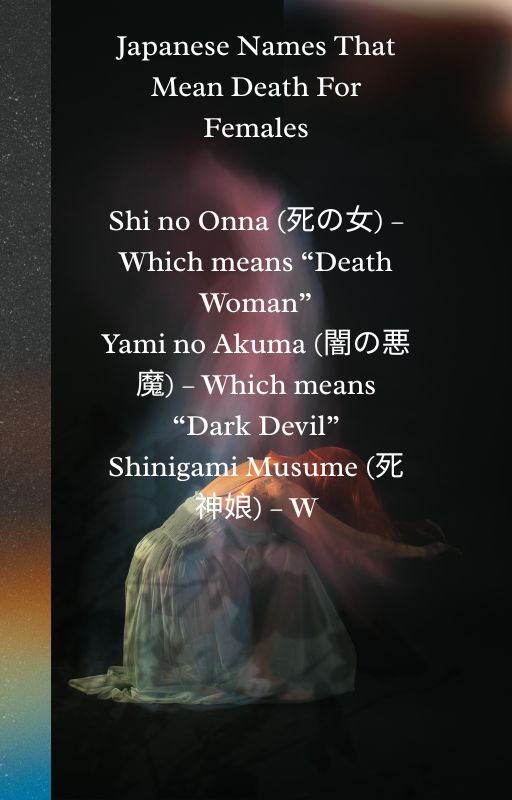
| Name (日本語 ・ Romaji) | Meaning / Theme (symbolic, not literal “death”) |
|---|---|
| 月子 ・ Tsukiko | Moon child; quiet lunar glow |
| 月乃 ・ Tsukino | Of the moon; nocturnal grace |
| 月夜 ・ Tsukiyo | Moonlit night; hush |
| 朧月 ・ Oborozuki | Hazy moon; veiled light |
| 朧月夜 ・ Oborozukiyo | Hazy moonlit night; soft twilight |
| 朧 ・ Oboro | Dim, hazy; twilight mood |
| 夕霧 ・ Yūgiri | Evening mist; fading day |
| 夕凪 ・ Yūnagi | Evening calm; still water |
| 夕月 ・ Yūzuki | Evening moon; moonglow |
| 宵月 ・ Yoizuki | Night-before moon; dusk glow |
| 宵闇 ・ Yoiyami | Early night darkness; deepening shade |
| 宵乃 ・ Yoino | Of the night hour; liminal |
| 小夜 ・ Sayo | Little night; gentle dusk |
| 夜乃 ・ Yono | Of the night; nocturne (fictional use) |
| 夜子 ・ Yoko | Night child; quiet strength (alt kanji) |
| 夜見 ・ Yomi | Night gaze; otherworldly hush |
| 夜波 ・ Yonami | Night waves; dark water (fictional) |
| 夜凪 ・ Yonagi | Night calm; windless hush |
| 夜空 ・ Yozora | Night sky; starlit canopy |
| 夜星 ・ Yuboshi | Evening star; lone light (fictional reading) |
| 星影 ・ Hoshikage | Star shadow; distant light |
| 星月夜 ・ Hoshizukiyo | Starry moonlit night |
| 月影 ・ Tsukikage | Moonlight; the moon’s shadow |
| 月華 ・ Gekka | Moon flower; pale bloom |
| 月詠 ・ Tsukuyomi | Moon chant; mythic lunar tone |
| 影子 ・ Kageko | Shadow child; watcher |
| 影乃 ・ Kageno | Of the shadow; hidden |
| 影美 ・ Kagemi | Shadow beauty; subtle grace |
| 影夜 ・ Kageya | Shadowed night; secrecy (fictional) |
| 影衣 ・ Kagekoromo | Garment of shadow; veil (poetic) |
| 霞 ・ Kasumi | Mist; soft veil |
| 霞乃 ・ Kasumino | Of the mist; faintness (fictional) |
| 霞音 ・ Kasune | Mist sound; muffled tone |
| 霧 ・ Kiri | Fog; veil |
| 霧子 ・ Kiriko | Mist child; gauze-light |
| 霧乃 ・ Kirino | Of the mist; pale hush |
| 霧音 ・ Kirine | Sound of mist; soft hush |
| 白露 ・ Shiratsuyu | White dew; fleeting sparkle |
| 露 ・ Tsuyu | Dew; ephemerality |
| 露子 ・ Tsuyuko | Dew child; brief |
Japanese Last Names That Mean Death
| Surname (日本語・Romaji) | Literal gloss / Notes |
|---|---|
| 黒木 ・ Kuroki | “Black” + “tree.” Common real surname; dark/solemn tone via 黒. |
| 黒川 ・ Kurokawa | “Black” + “river/stream.” Real surname; nature + dark hue. |
| 黒田 ・ Kuroda | “Black” + “rice field.” Historic clan surname; serious, earthy tone. |
| 黒崎 ・ Kurosaki | “Black” + “cape/promontory.” Real surname; often used in fiction too. |
| 影山 ・ Kageyama | “Shadow” + “mountain.” Real surname; evokes shade and height. |
| 霧島 ・ Kirishima | “Mist” + “island.” Real surname/place; cool, foggy imagery. |
| 氷室 ・ Himuro | “Ice” + “chamber/room.” Real surname; cold, austere mood. |
| 氷川 ・ Hikawa | “Ice” + “river.” Real surname; chill, flowing image. |
| 霜田 ・ Shimoda (Shimo da) | “Frost/hoarfrost” + “field.” Attested as a surname reading; frosty nuance. |
| 霜村 ・ Shimomura | “Frost” + “village.” Listed among frost-kanji surnames; wintry feel. |
| 霧嶋 ・ Kirishima (alt) | Variant form using 嶋 for “island.” Same misty connotation. |
| 夕凪 ・ Yūnagi | “Evening calm.” Poetic, twilight mood; used as a surname in some records. |
Conclusion
Choosing “Japanese names that mean death” is less about finding a literal translation and more about building the right mood with respectful symbolism. In real naming, death-kanji are rare and inauspicious, so writers reach for adjacent motifs like night, shadow, winter, haze, new moon, and dew. These themes let you signal loss, impermanence, or quiet strength while staying aligned with cultural norms. If you verify kanji, confirm readings, and test how a name sounds with the surname, your characters will feel authentic rather than exotic.
Use the tables above as a starting library, then refine with a dictionary check and a quick sensitivity read from a native speaker. Want help matching a name to your character’s arc or era setting? Share the role, traits, and tone, and I’ll suggest a short list with kanji, kana, and usage notes.

